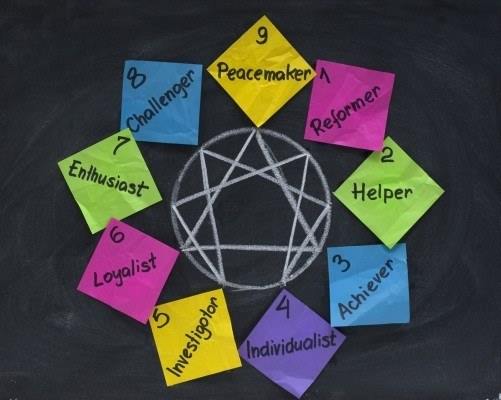Know thyself, as the adage goes.
What does that mean exactly? More importantly how do we go about doing this?
Understanding how we see the world, and how the world sees you, plays an important role in how we navigate through the world. Self awareness helps us to understand how we interact with others and the choices we make day to day.
After all we certainly see what happens when people act with little self awareness. They generally leave a swath of wreckage. Certainly this happens intentionally at times, but for the most part we notice that it stems from a lack of self awareness and our impact on the world.
Over the years, a number of different tests and methods developed to aid us in gaining this awareness. The next couple of weeks we explore of few of these personality assessment tools as a way to inspire your self exploration. These tools can be powerful and help us to improve our relationships, our work and our wellness.
Today we discuss a system of personality profiling or personality assessment called the Enneagram.
Now generally when most people hear the words “personality profile” they either:
- Cringe and say, “Don’t try and push me into some narrow box.” Or
- Find it curious, asking, “What is MY type?”
Both of the reactions described above miss the point. The different personality types described in the Enneagram system describe only our habit of thinking and our habits of behavior. These kinds of tests do not present absolutes.
The habitual ways we think and respond to people, places and situations is often rather narrow. Our habits do not define our essence, but the ways we automatically respond to people and situations can profoundly shape our lives. By cultivating awareness of this habitual reaction we can see when it supports us and when it hurts us. Helpful when you feel you repeat the same mistakes or manifest the same conflicts over and over.
The spread of information and interest in the Enneagram in this country is due in large part to the Jesuits. The Jesuits did not invent the Enneagram, but they saw in it a tool of great value to help with freeing a person of the bondage of habit and personality. For them these things often were what keep someone distant from their God.
My teacher was Don Richard Riso who died a few years ago. I recommend his book The Wisdom of the Enneagram (Get the Book Here), which he wrote with Russ Hudson.
They also have a website at www.enneagraminstitute.com
We also include here a link to a PDF of one of poems by Don and Russ called Stages of the Work: The-Stages-of-the-Work
Although the tone of the piece has a spiritual nature to it, it speaks to what happens when we engage life from something less limited than our habits. Habits root themselves in routine, and often they connect to what we don’t want to change in ourselves.
Let’s be honest, our habits tend to be where we are stuck in our rut. The deeper the rut gets, the harder it becomes to move out of it. We stay stuck on one track, digging in deeper when life pushes back on us.
In the end this does not bring us to higher states of sanity or wellness.
Sorry advocates of the rut.
Coming up next time we discuss the Enneagram more in Part Two of this article. We encourage you to buy the book, check out the website and download the PDF in the meantime.
When you do let us know your thoughts. Leave a comment and get the dialogue going. Your wisdom helps everyone involved.
Until then – To Your Health.
Image courtesy of © Can Stock Photo Inc. / PixelsAway

